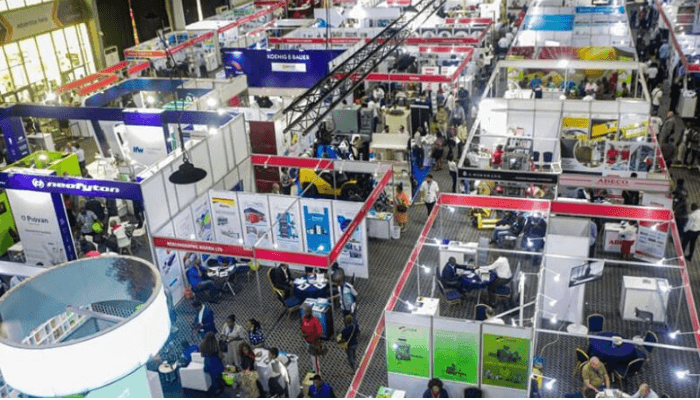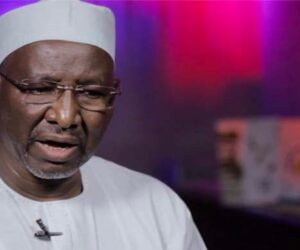Nigeria’s textile industry, once a thriving sector, has been on a steady decline, with over 180 textile mills shutting down in recent years.
Textile manufacturers reeled under the heavy weight of unbridled importation and policy somersaults that lasted for decades.
They borrow from banks at an average interest rate of 32 percent and spend billions per month on diesel or other forms of energy, due to an inadequate power supply to industrial zones.
The security of cotton farmers and textile makers, who are mostly located in northern Nigeria, has become a serious matter due to worsening insecurity in the region.
Read also: Effective Legislation, implementation crucial for Nigeria First policy success – MAN
In areas where there is relative peace in northern Nigeria, such as Kano, Kaduna and Sokoto, cotton, an essential raw material at textile mills, is often scarce.
Farmers no longer see the business as lucrative, as patronage from ginneries has become low, just as it is for locally made textile materials. Out of over 210 ginneries in the 1980s, fewer than 15 are now in operation throughout a country of over 200 million people.
Textile manufacturers are also poorly patronised by the Nigerian consumers, as well as governments at the state and federal levels. Ironically, these two tiers of government sing and clap in the media, asking their subjects to buy made-in-Nigeria products.
The industry, which once employed over 500,000 people across the value chain, also suffered from the influx of cheap imported textiles as local manufacturers were unable to compete due to the combination of the factors stated above.
The decline of the textile industry makes it clear: Nigeria must prioritise local manufacturing to secure jobs and drive economic growth, says Aliko Dangote, president of Dangote Group and renowned industrialist.
The Nigeria First policy, focused on promoting domestic production and consumption, is essential for revitalizing manufacturing and ensuring sustainable economic growth.
Reviving local manufacturing requires not just protectionist measures but also strategic investments in infrastructure, technology, inputs and skills development to restore competitiveness, according to Dangote.
Dangote, at the 5th Adeola Odutola lecture recently in Lagos, said that the Nigeria First policy represents a bold opportunity to industrialise sustainably.
He noted that its success depends on clear legislation, institutional enforcement, stable policy implementation and strong alignment across government agencies and industry.
He said that countries such as China, South Korea, Indonesia and Malaysia have shown that a strong manufacturing base is crucial for job creation, innovation and export-driven growth.
Read also: Nigeria’s manufacturing future in a low-carbon world
India is a clear example of a country that has expanded its manufacturing base using the “Make in India” policy to drive growth.
Since the policy was introduced in 2014, it has expanded India’s position in the Original Equipment Manufacturer suppliers’ market and attracted a sharp rise in foreign direct investment equity inflow into the country.
“Like in earlier times before the Make in India policy, if you have placed the order for 50 transformers, most Indian companies might not be able to deploy,” Abhishek Singh, India’s high commissioner to Nigeria, said during the lecture in a panel discussion.
“But today, even if you place an order of 5,000 transformers, they will be able to deploy. This shows there has been a great increase in the capacity of Indian firms since the initiative,” he noted.
The Manufacturers Association of Nigeria (MAN) has said that the Nigeria First policy holds the potential to significantly boost the fortune of the country’s manufacturing sector and improve the well-being of the Nigerian citizenry.
“This is not just ambition,” said Francis Meshioye, president of MAN. “A Nigeria First policy is a national economic necessity.”
For decades, Meshioye said the sector has relied on a development model built around import dependence and weak enforcement of local patronage obligations.
This model, he said, has delivered neither resilience nor inclusive growth, but contributed to the systemic underperformance of our industries.
“If we do not intentionally support our own manufacturers, we will not be able to compete globally.”
“It is unsustainable for Nigeria to continue subsidising the production and employment of other nations through unchecked imports, while our own factories continue to record low capacity utilisation and serial underperformance.
Read also: FG lists six-point plan to implement Nigeria First policy
MAN believes that the ‘Nigeria First’ policy is about building national resilience, creating jobs at home, saving foreign exchange, driving technological innovation, and giving Nigeria the productive foundation it needs to be competitive globally.
“Every industrialised country began its journey by nurturing local content and leveraging public and private procurement as an avenue for galvanising scale production and economic development. Nigeria must not go the opposite direction,” said Francis Meshioye, president of MAN.
The MAN president noted that to build a resilient, inclusive and forward-looking economy that investors will have confidence in, the country must re-industrialise, and that process must begin with deliberate support for local manufacturers.









